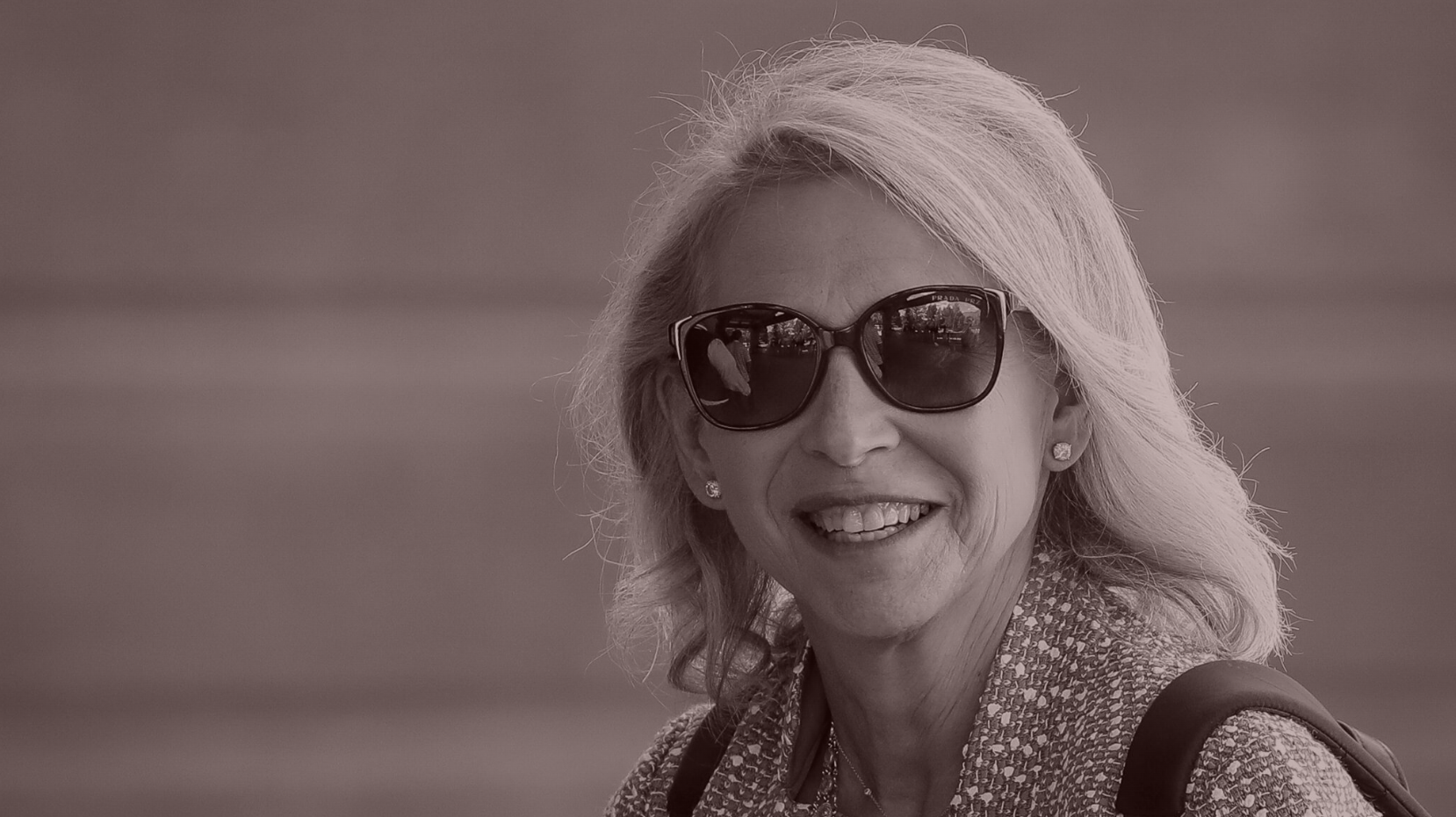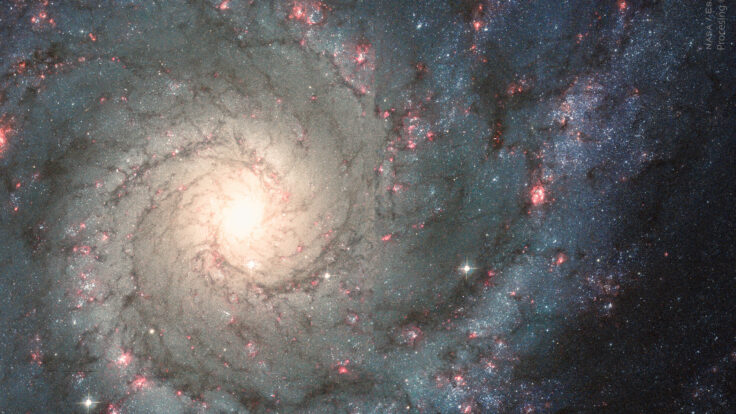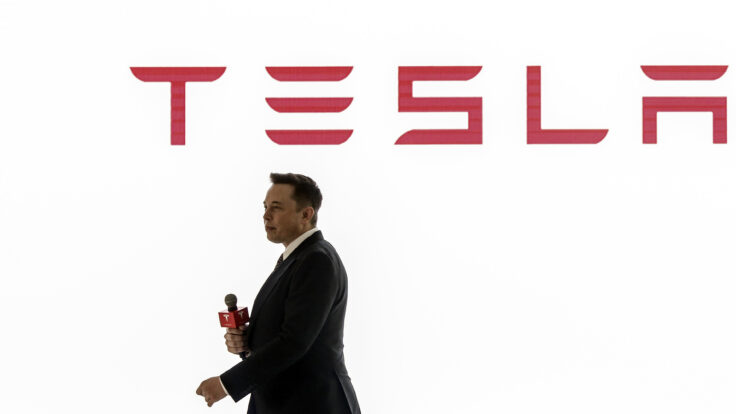
|

|
|
Welcome back to Dry Powder. I’m William D. Cohan.
|
|
Every time I think we’re nearing the culmination of the Paramount saga, I’m reminded of the difficulty of catching a falling knife. As I reveal today, we’ve appeared to enter a new stage of deal fatigue—one wherein controlling shareholder Shari Redstone, faced with two highly imperfect offers, may be forced to contemplate the once unimaginable… take her heirloom off the market and let her interim C.E.O.s and undermanned board try to spruce it up for another showing in a year or two. The plot thickens!
But first… Something tells me that the well-heeled Dry Powder audience would love my new partner Marion Maneker’s private email about the art market, Wall Power. Here are a couple notes from Marion about the forthcoming Gigaweek…
- Welcome to Gigaweek: The next two weeks are a crucial moment in the art market—the largest sales season, May, in the biggest market, the United States. Across New York this past week and rolling through the next two weeks, gallery shows are opening, art fairs are taking place, the auction houses have their sale previews mounted and open to the public. Chelsea and Tribeca are choked with foot traffic. The auction house specialists will spend the next 10 days living in the galleries as art advisors stream through with their clients. Even at the end of all of this, when the sales begin on May 13, bidders who seemed determined will evaporate and others will appear in the showroom without notice. The art market is nothing if not filled with suspense.
While we wait to see how it all plays out, I’ve downloaded the lot data from my friends at LiveArt. What it shows is a continuing migration in the art market, with some of that change coming from the overall market downshift.
First, let’s look at the topline numbers. Presale estimated value for this year’s May auctions at Bonhams, Christie’s, Phillips, and Sotheby’s is $1.252 billion dollars. That’s down 17 percent from a year ago and about half of what the sales were two years ago. As far as the presale estimates go, Christie’s came out on top at $575 million; Sotheby’s was close behind with $548 million; Phillips has a surprisingly robust $112 million; and Bonhams is hanging in there with $17.3 million in presale value. On Friday, I spoke to a handful of Sotheby’s specialists at the opening of their exhibition. What pleased them most was their ability to land a lot of high-quality art during a season without a dominant collection. These specialists had worked hard to read the market and land what they believe are the right consignments. So you can understand their sense of accomplishment.
The highest-value work of art in this season’s sales is a Jean-Michel Basquiat with an estimate of $40 million. Last year, already a down year from the season before, there were three lots over $40 million: a Basquiat, a Gustav Klimt, and a Pablo Picasso painting. Last year’s sales had a clearly dominant artist, Picasso, whose work accounted for nearly 12 percent of the presale estimate value. In other years, the market share might be even higher for dominant artists like Andy Warhol, Claude Monet, Gerhard Richter, or Basquiat.
This season, Basquiat is also the top artist by presale estimated value, with $96.7 million dollars. Monet is a close second, at $95.5 million. Picasso is a distant third, at $69 million. Unlike last year, not one of these major artists breaks above 8 percent in presale market share. Does it augur well for a future market based upon a broader number of artists? Or is this just a temporary feature of a market lull?
Sign up for Wall Power here.
|
|
And now, for Shari…
|
 |
| Shari Considers Door No. 3 |
| After letting the Ellison/RedBird exclusivity window lapse, it seems increasingly possible—at least for now—that the deal dies with age, Shari rejects the Apollo-Sony bid, and delays this brutal M&A process until next year. Quelle horreur! |
|
|
|
| Mario Gabelli is back to tweeting again. And now, with the $26 billion bid from Sony, Apollo, and Legendary for Paramount Global officially on the table and the negotiations started, he has something substantive to tweet about. “It ain’t over till it’s over,” he wrote on Thursday afternoon, citing the famous line from Yogi Berra, and equating the 1973 “Miracle Mets,” which Berra managed to the National League pennant, to “Paramount 2024.” Gabelli was on CNBC on Friday expanding on his Berra tweet, noting that he’s not ruling out either deal. After all these years, he just wants a payday. “I’m in the camp of fighting for every shareholder to get the same price as Shari Redstone,” he said.
Not so long ago, Redstone—who controls Paramount Global through her family holding company, National Amusements Inc., which owns 77 percent of the voting stock in Paramount—wasn’t sure there were going to be any bids for the company. Now there are two legitimate offers—each from a well-capitalized bidder, each with its own set of challenges—for the special committee of the Paramount Global board to consider. And yet, there is also the increasing possibility that neither bid will be accepted.
|
|
A MESSAGE FROM OUR SPONSOR
|

|
|
The rise of AI has been making headlines and capturing investors’ attention. However, intense competition in this area makes it hard to tell which companies have staying power, turning investments in individual firms risky. For a more balanced approach to including AI in your portfolio, consider the Global X Artificial Intelligence & Technology ETF (AIQ), which invests in numerous companies, providing a diversified way to tap into the potential of AI.
Explore AIQ
|
|
|
| As my partner Matt Belloni reported on Thursday evening, and as I have also been told, the special committee is not going to extend the exclusivity period with David Ellison’s Skydance and Gerry Cardinale’s RedBird Capital, which may effectively kill that deal since no agreement between the two sides has been reached—although that, too, is understandable given the various complexities here. Shari and her bankers and advisors may have blinked at the likely onslaught of shareholder lawsuits from the likes of Gabelli & Co. And my sense is that Ellison/RedBird has reached their point of indifference, too.
A source close to the Ellison/RedBird faction told me, as of Friday afternoon, that the group is assessing its options at this point. On Sunday, that still seems to be the plan: They are not making any rash moves, staying disciplined and dispassionate while also believing their offer is the most creative and potentially lucrative deal for all shareholders. Not that it will likely matter one whit, but both James Cameron, the director, and Ari Emanuel, the Endeavor co-founder and “super-agent,” told the Financial Times they would support the Ellison/RedBird bid. (A spokesman for the special committee declined to comment on why they had decided not to extend the exclusivity period.)
But if that deal goes away or dies and Shari rejects Sony/Apollo’s $26 billion all-cash offer—a deal that offers both classes of stock a premium, and presumably treats them fairly but likely does not give Shari the kind of premium she was getting from Ellison/RedBird—that leaves Paramount with very little choice but to go it alone with its three-headed interim C.E.O. monster. That’s what our friend Rich Greenfield, at LightShed Partners, seems to think will happen. “Paramount prepares to go it alone,” is the headline of a LightShed post from Friday. “While Skydance could come back later in 2024 or next year, we sense National Amusements sees too many legal headaches with proceeding, given the special committee’s view of the proposed transaction,” he wrote.
As for the Sony/Apollo bid, he noted: “While investors will immediately expect National Amusements/Paramount to embrace the Sony-led P.E. bid that was submitted earlier this week, we do not expect the Paramount Board will meaningfully engage on this bid.” He cited other roadblocks—Shari’s likely disinterest in selling to a buyer that will surely break up the company, various regulatory hurdles, etcetera. Of course, Greenfield also noted that this veritable Door No. 3 option would only further hinder Paramount’s standing in the marketplace—exacerbating the problems at Paramount+, extending its headaches with the cable business, and prolonging its balance sheet woes. The company, Rich concluded, would “be in far worse balance sheet shape in 12-18 months if the deal fails to close. No break-up fee can compensate for that. Look for Paramount to refocus on strategically reorienting its business in the weeks ahead and to revisit M&A later in the year or into 2025, especially when there is greater political/regulatory visibility.”
It’s hard to disagree with Rich, as incredible as that proposed outcome may be after all this. Apparently, investors also found it hard to disagree. Even though the market was up big on Friday, Paramount’s stock was down more than 7 percent.
|
| The Gabelli Miracle Theory |
|
| Not a whole lot is known about the Sony/Apollo bid, other than it’s for $26 billion in cash, which really means $12 billion in cash for all of both the Class A and Class B shares of Paramount Global, plus the assumption of Paramount’s $14 billion in net debt. The Sony/Apollo deal will take Paramount private, meaning it will no longer be a publicly traded company and may no longer make filings with the Securities and Exchange Commission, although its debt may require filings to continue. I can also report that Sony would be the majority shareholder of the newly privatized Paramount, with Apollo taking a minority stake. Sony Pictures C.E.O. Tony Vinciquerra would more than likely run the combined company.
What’s not clear, at least to me, is how the $12 billion that Sony/Apollo is offering for the Paramount shares will be divvied up between the Class A voting stock, which Shari controls and of which Gabelli owns 5 million shares, and the Class B stock, which moved up 13 percent on Thursday following the news of the Apollo bid. (The Class B stock now has a total value of $9 billion after its decline on Friday.) Does that mean the balance of the $12 billion, or $3 billion, will go to the Class A shareholders? I don’t know for sure, and the people who do know aren’t talking. But probably not. There is a lot of deal arbitrage going on at the moment, since both opportunities could still fall apart. (According to CNBC, Gabelli seems to think Apollo has included a premium for Shari in its offer.)
If $3 billion for the Class A shares is close to accurate, Shari would get 77 percent of that $3 billion, or $2.3 billion. And if this calculation is right, or close to right, the Sony/Apollo deal for Shari is actually not that far off what Ellison/RedBird are contemplating offering her for NAI, and may actually be higher. But, again, without the letter in hand, we just don’t know. (Apollo declined to comment or to share its offer letter, alas.)
One crucial difference, of course, is that Ellison/RedBird are buying NAI from Shari, while Sony/Apollo would leave her to grapple with NAI and its movie theaters and other liabilities. Of course, I’m not even sure the Sony/Apollo offer letter, which was signed by Vinciquerra and Aaron Sobel, a private equity partner at Apollo, delineates how the $12 billion in cash will be split up between the Class A and the Class B shareholders, but I assume that information will leak out into the market soon enough, or maybe already has.
|
|
|
|
|
| There are at least two issues with the Sony/Apollo deal. The first is that it eliminates any upside for Paramount shareholders. If the deal goes through and the company goes private, the public shareholders of Paramount are bought out once and for all, and some have been arguing to me that it would be an opportunistic buyout at a relatively low price point in the company’s history. On the other hand, if the unaffected stock price is assumed to be $11 per share, the market believes Sony/Apollo is offering a 26 percent premium (before Friday’s retreat), not huge, but nothing to sneeze at, either.
But the second and most critical issue for Sony/Apollo is that Shari doesn’t like the deal—presumably because she’ll get less of a payout while still having to grapple with NAI, and also because Sony/Apollo would likely be slicing and dicing her company, which is not what she wants for her family’s legacy—and she can veto it without giving a reason. Of course, if she did that, there would likely be a raft of litigation in Delaware court and the Paramount board’s Revlon duties may kick in, meaning that the company would need to be sold to the highest bidder for all the Paramount shares, which would undoubtedly be Sony/Apollo. There’s a fair amount of legal disagreement around this Revlon issue, and it may need to be adjudicated in Delaware as well—if things get there.
And then there are the other problems with the Sony/Apollo deal, starting with the regulatory mishegoss—whether Sony, a foreign entity, can own CBS; or whether it’s okay to decrease Hollywood’s five studios to four; or that persnickety law preventing one owner of local stations from reaching 39 percent of U.S. households. My sources in and around the Sony/Apollo deal are telling me that their brilliant lawyers have structured around these potential problems, and they are confident that the deal will not run afoul of the regulators. And maybe that is true—this, after all, is what Apollo does. But it seems to me that the Biden Justice Department, with a twist of Lina Khan at the Federal Trade Commission, is very likely to want to stick its snout into this deal. In the meantime, it sure seems like the Sony/Apollo deal will be a full-employment act for Wall Street lawyers and there will be delays aplenty, as Greenfield also surmised.
If the Sony/Apollo $26 billion bid solves the problem of not treating all shareholders fairly, the Ellison/RedBird deal is all about the opposite. Their deal gives Shari something like $2 billion for NAI, in effect buying her controlling position in the company, but gives nothing to the other Class A shareholders, including Gabelli and John Rogers Jr. Longtime readers will be interested to know that Warren Buffett revealed over the weekend that Berkshire Hathaway sold the rest of its remaining 60 million share stake in Paramount Global in the first quarter of 2024, perfecting a rare loss for the Oracle of Omaha. “We lost money on Paramount and I did it all by myself, folks,” Buffett said on Saturday at the Berkshire annual meeting.
Honestly, I’m still not sure how this will play out. And I don’t envy Centerview Partners’ Blair Effron and Cravath’s Faiza Saeed, who get to advise the special committee on which deal to endorse, although the assignment itself is damn interesting. Any of the three options could still happen, including a no-sale decision. (A spokesman for Paramount did not respond to my question about whether doing nothing remains an option.) But Greenfield was right about the need to fire Bob Bakish, and he might well turn out to be right that nothing is what will happen here, too. Could that be the opening Zaz has been hoping for all along?
|
|
|
|
| FOUR STORIES WE’RE TALKING ABOUT |
 |
|
 |
|
 |
| YNAP Rumblings |
| Digging into a pair of fashion world plot lines. |
| LAUREN SHERMAN |
|
 |
|
|
|
|
|
 |
|
|
|
Need help? Review our FAQs
page or contact
us for assistance. For brand partnerships, email ads@puck.news.
|
|
You received this email because you signed up to receive emails from Puck, or as part of your Puck account associated with . To stop receiving this newsletter and/or manage all your email preferences, click here.
|
|
Puck is published by Heat Media LLC. 227 W 17th St New York, NY 10011.
|
|
|
|













